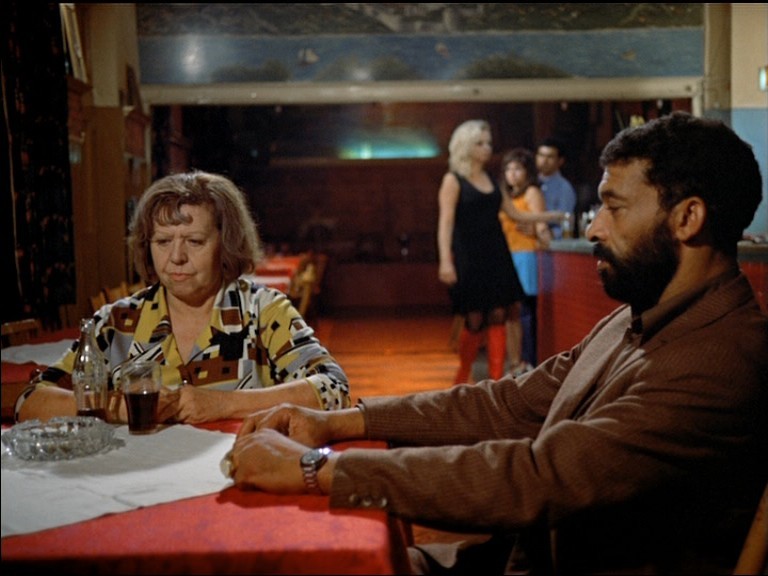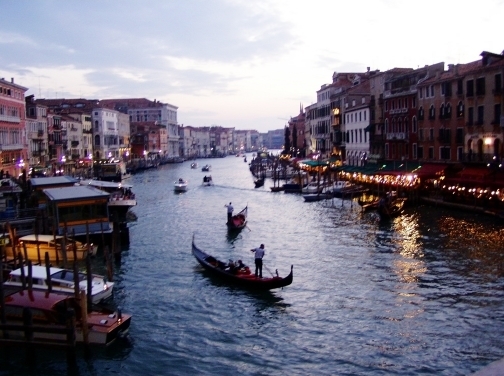Buena Vista Social Club
 Tuesday, March 24, 2009 at 18:33
Tuesday, March 24, 2009 at 18:33 Ten years ago while aestivating in Paris I devoted an inordinate amount of time to the simple city pleasures of the young and untrammeled, Paris being specifically designed for such lollygagging. The summer was warmer than it should have been; my interests were split among reading a very long and very famous French novel and logging some quality hours with my cousins; and, as often as I could, I roamed a metropolis that enthralls so many visitors because it has never declared its allegiance. There are parts of Paris which persuade you that the Revolution against the moneyed and profligate has never ebbed; others which suggest these overlords still reign unrepentant. Whatever you may think of fashion, trend, or advertising (regular readers will know how I stand – quite aside), Paris must be counted among the freest cities in the world for sustaining a remarkable range of analyses and categories without yielding to any one of them in particular. And despite its having hosted a series of insurrections, mutinies, and riots, it is the opposite of the boarded-up shanty towns that masquerade as socialist centers of culture. Now I am all for governmental support of the underprivileged, the weak, and the sick because the rest of us can jolly well take care of ourselves; but what a country's government should never do is banish its citizens to uniformity, unemotionality, and hardscrabble everydayness. Its soul should never be ripped from it because having a soul means having the choice to do good. Which makes my discovery that summer of this unusual film all the more appropriate.
 The beginning has the taste of legend: people talking about the Buena Vista as if it no longer existed – which, with changing times in Cuba, is and is not the case. Interspersed with these fragmentary interviews are clips from the group's April 1998 two-night performance in Amsterdam; from the crowd's enthusiasm I initially took the concert site to be Cuba. The godfather of this project, and the only reason the film exists in the format it does, is American guitarist Ry Cooder who admits "wandering about Cuba with his wife in the 1970s looking for son music." Melomaniacs will be quick to point out that son cubano is the direct ancestor of this type of popular Latin music, and similarities are audible even to the novice. We are then introduced to an eclectic group of once-forgotten stars, among them: Compay Segundo, a chain-smoking ninety-year-old responsible for the arrangement of the group's most famous tune, "Chan Chan"; one of their lead singers, Ibrahim Ferrer, seventy years in physical age but imbued with the charisma and swagger of any young superstar; Rubén González, a son pianist considered by his peers to be the best of his kind; Orlando "Cachaito" López, who was told by his family he couldn't become anything but a contrabassist; Omara Portuondo, the diva; and Pio Leyva ("The Cuban Highlander"), a wise-cracking Groucho Marx look-alike whose ego is as deep as his voice. A director of a fictional documentary would be hard-pressed to cast a more diverse group, especially considering how smoothly they all perform together as if they had always worked as a unit (which of course they hadn't; their familiarity with one another is owing mostly to mutual admiration). Bits and pieces of their tales are made known, some less fortunate than others, yet the viewer is duly aware that their paths will converge in a harmonious end.
The beginning has the taste of legend: people talking about the Buena Vista as if it no longer existed – which, with changing times in Cuba, is and is not the case. Interspersed with these fragmentary interviews are clips from the group's April 1998 two-night performance in Amsterdam; from the crowd's enthusiasm I initially took the concert site to be Cuba. The godfather of this project, and the only reason the film exists in the format it does, is American guitarist Ry Cooder who admits "wandering about Cuba with his wife in the 1970s looking for son music." Melomaniacs will be quick to point out that son cubano is the direct ancestor of this type of popular Latin music, and similarities are audible even to the novice. We are then introduced to an eclectic group of once-forgotten stars, among them: Compay Segundo, a chain-smoking ninety-year-old responsible for the arrangement of the group's most famous tune, "Chan Chan"; one of their lead singers, Ibrahim Ferrer, seventy years in physical age but imbued with the charisma and swagger of any young superstar; Rubén González, a son pianist considered by his peers to be the best of his kind; Orlando "Cachaito" López, who was told by his family he couldn't become anything but a contrabassist; Omara Portuondo, the diva; and Pio Leyva ("The Cuban Highlander"), a wise-cracking Groucho Marx look-alike whose ego is as deep as his voice. A director of a fictional documentary would be hard-pressed to cast a more diverse group, especially considering how smoothly they all perform together as if they had always worked as a unit (which of course they hadn't; their familiarity with one another is owing mostly to mutual admiration). Bits and pieces of their tales are made known, some less fortunate than others, yet the viewer is duly aware that their paths will converge in a harmonious end.
There is also much music to enjoy. "Chan Chan," the opening number, is absolutely hypnotic, Ferrer's "Two gardenias" almost as good. Another striking scene showcases tiny Cuban ballerinas and gymnasts skipping and hopping about with González on piano – a stark contrast to the slum-like images at the film's onset. It is important to note that none of them is a virtuoso, perhaps because it would be too easy to concentrate our attention on the best musicians of the world, or even the most talented of Cuba; in essence, these are jazzistas. And although jazz often takes far less technical training, it requires more color and personal spunk to achieve because the aim of jazz is liberation not perfection, freedom from the constraints imposed by conservatory after conservatory, with extended soloing meant to mock the anonymity of the typical orchestra. The album itself revives many of the forgotten stars, perhaps to remind Cuba of how glorious it once was (which may also remind viewers of this film). So when the group chants that "the dancers are coming, all the roads are jammed," some might view the masses assembled as Directorian in nature. What is more interesting, however, are the sideways implications of the film's closing scenes in which band members finally make it to this historical venue: Leyva and a colleague come to a store full of touristic oddities, including dolls of presidents, and posters and figures of famous entertainers, none of whom they can identify by name. Are they richer or poorer for such a lacuna in general knowledge? The question is left open since, for them, an answer would mean that they cared more than they possibly could.
Reviews of Buena Vista Social Club were overwhelmingly positive, but I should mention the comments of one famous critic (paraphrased here to keep the Google hounds at bay). While enamored with every minute of music that is played in the film, our man (not) in Havana derides Wenders's technique of cutting off songs, jiggling his handheld camera, and, most damningly, ending the film not with the band's Carnegie Hall triumph, but with its awed twilight tour of the streets of New York. There is an obvious political angle to this strategy which either eludes the critic or which he deems of secondary importance – but politics is hardly the point. All art should seek to wed content to form, to reflect in every atom what its moral foundation would have you describe as its essential elements, and what Wenders achieves in this regard should not be dismissed. His casual, disorganized, and often impromptu method of capturing tidbits of life and music from these talented individuals will necessarily not result in your typical homage to musical genius – which is exactly what our critic seems to desire. Odd, fragmented, sad stories deserve to be told in an unwieldy and gritty fashion that bears meaning in the smallest detail, meaning lost if the film were to be recorded and edited as tightly as the film's eponymous soundtrack. So when Ferrer observes that, "we Cubans are very fortunate. We are small, but I tell you, we are strong. We have managed to resist the good and the bad," one might do well to think of the cinematic tribute to their discipline. After all, if you can only resist the bad, you'll only be as good as everyone else.




